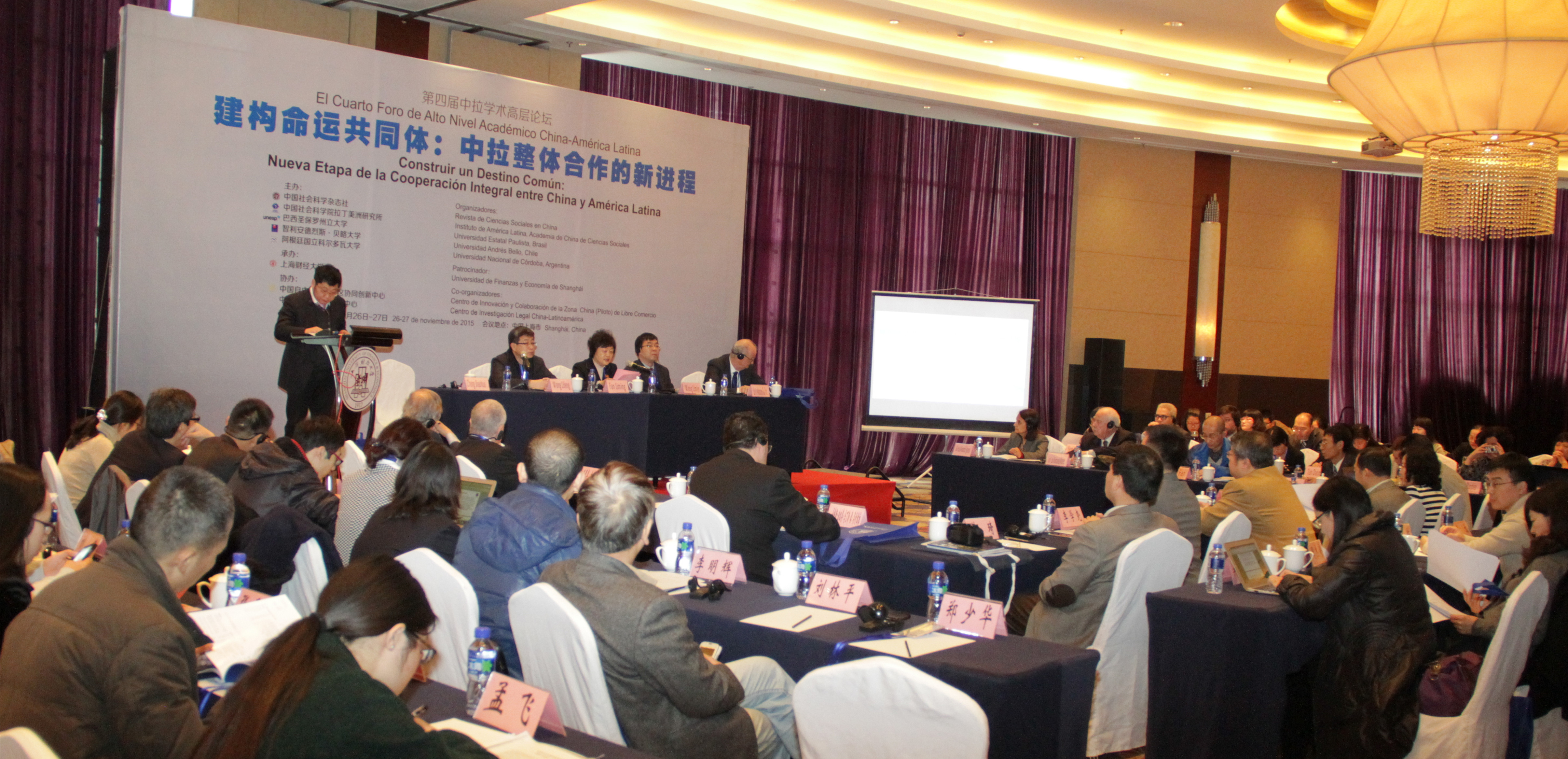Reality, history offer intellectual support for China-Latin America partnership

The fourth China-Latin America High-Level Academic Forum, themed “Building a Community of Common Destiny: New Progress in China-Latin America Cooperation,” was held in Shanghai from Nov. 26 to 27.
The fourth China-Latin America High-Level Academic Forum, themed “Building a Community of Common Destiny: New Progress in China-Latin America Cooperation,” was held in Shanghai from Nov. 26 to 27. Scholars in attendance discussed a range of topics covering trade and economics, cooperation mechanisms, cultural differences and China-Latin America relations.
Scholars said discussions from the perspective of history and reality present intellectual support for China and Latin America to further economic and cultural integration, including enhancing bilateral relations, mutually beneficial cooperation, and coordinated governance capacity.
Wang Limin, executive deputy editor-in-chief at Social Sciences in China Press, said that it has been proven that in the era of globalization and convenient Internet access, face-to-face exchanges of ideas remain crucial to pooling wisdom for the challenges ahead. Since the first forum, topics have been broadened from social issues to cover politics, economics and culture.
Wang Lifeng, deputy director of the Institute of Latin American Studies under the Chinese Academy of Social Sciences, said China and Latin America share common interests and vision in multiple fields such as economic growth, people-to-people and cultural exchanges, social development and people’s livelihoods, prompting the bilateral relations to comply with the worldwide trend of South-South cooperation, shifting from economic partners to a community of common destiny.
Luis Antonio Paulino, a professor of economics at Sao Paulo State University, pointed out that the key to China-Latin America cooperation is enhancing the two sides’ scientific, technological and innovative capacity, particularly by encouraging research institutions and universities to cooperate in the fields of agriculture, food production, new materials, satellites, bio-energy and biotechnology.
Rosa Isabel Basaure Cabero, an expert on China-Latin America relations at the University of Santiago in Chile, also suggested China-Latin America cooperation should advance beyond the current trade, technology, infrastructure and cultural exchanges to the next level, such as solar energy, astrophysics, natural resources protection, and human capital training.
Scholars said the cooperation between the two sides should be broadened and there should be in-depth discussions on formulating rules in accordance with the times.
Andrea Pappier, a professor from the Confucius Institute at National University of La Plata in Argentine, said that 2016, the China-Latin America Cultural Exchange Year, marks a great opportunity for the two sides to step up exchanges in cultural industries and come up with new cooperation mechanisms.
Bao Haihua, a professor from the School of International Business Administration at Shanghai University of Finance and Economics, said that China and Latin America should establish consultation mechanisms for food safety standards in order to break trade barriers resulting from different standards on both sides.
In addition, scholars warned that due to cultural differences, the efficiency and outcomes of cooperation may be compromised.
Han Qi, a professor of history at Nankai University, said that Latin American culture is a mixed civilization that represents the material and cultural achievements created by the Latin American people, but it is also a paradoxical civilization that contains inequality and harmony, openness and dependence, and diverse cultures and unbalanced development.
Han said that only by recognizing these facts and the characteristics of each particular civilization can China-Latin America dialogue be better achieved.
Mónica Ahumada Figueroa, a scholar from the University of Santiago, said that Chinese scholars should pay attention to both past and recent changes in Latin America. On the one hand, the continent was subject to colonial rule. On the other hand, the integration process of Latin America is speeding up, which is manifested in the participation of Cuba in the Summit of the Americas and the consensus reached by the Community of Latin American and Caribbean States.
An understanding of such transformations will be conducive to promoting cooperation between China and Latin American countries, she said.
Wang Haifeng is a reporter at the Chinese Social Sciences Today.
